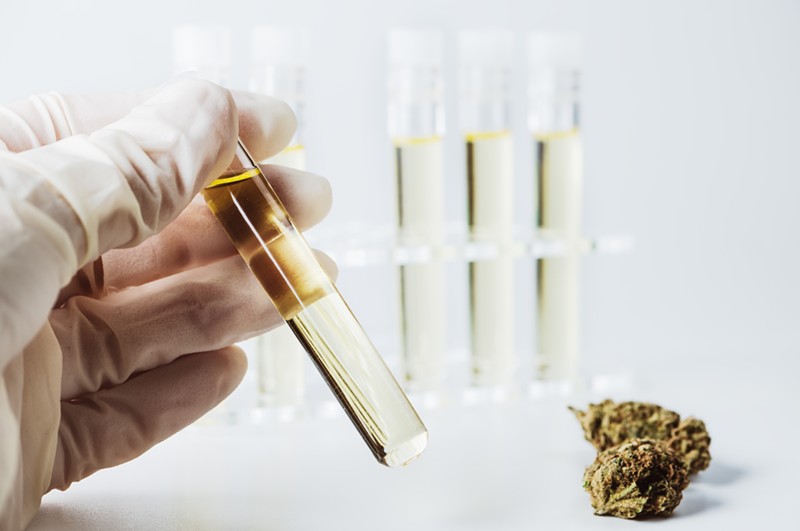New study finds cannabis could reduce chances of COVID-19 infection
While it's proven that cannabis can be effective in treating things like cancer, epilepsy, multiple sclerosis, chronic pain, as well as making watching the Cats movie more bearable, researchers are toying with another use for the Devil's lettuce: defeating COVID-19.
Well, almost.
As reported by Interest Engineering, researchers at the University of Lethbridge in Canada have found that certain cannabis strains may reduce COVID-19's ability to infect the lungs, as well as other susceptible tissues along the intestines and oral cavity.
The coronavirus is a respiratory disease that can be transmitted through airborne droplets that attach to the lungs and airways. The virus hijacks a healthy cell to multiply itself and, well, you know the rest.
Scientists first created some new Sativa strains and extracts — 400, in fact — and narrowed them down to a dozen that showed promise in reducing the coronavirus' infection rate. The final strains were high in CBD, a natural non-psychoactive chemical compound found in cannabis, which is known for its anti-inflammatory properties.
Though scientists didn't test these strains or treatments on humans, they did the next best thing: made artificial human 3-D tissue models. From there, they were able to identify how each strain interacts with a COVID-19 infection as well as how it interacts with ACE2, a cellular enzyme receptor.
The result? Well, according to biological scientist and the study's lead researcher, Dr. Igor Kovalchuk, some strains reduced virus receptors by 73% — in turn, dramatically lowering the chance of getting the virus at all.
This isn't the only study connecting cannabis and COVID-19.
In Israel, medical researchers are also looking into cannabis' anti-inflammatory properties, but for treatment of coronavirus patients, rather than prevention, High Times reports.
The study will likely start clinical trials in the coming months by using inflammatory cell samples from COVID-19 patients. The scientists' hope is to decode cannabinoids' response when interacting with the virus — specifically, when crossing paths with a “cytokine storm,” which happens when cytokine (an immune system protein) begins attacking the body's cells rather than the virus. The deadly phenomenon has been suspected to have taken place in fatal COVID cases.
Also out of Canada comes news that researchers at the University of Saskatchewan are moving exploring cannabis as a potential COVID-19 vaccine. The researchers have partnered with a medical cannabis company, Zyus Life Sciences, to reproduce and extract plant proteins that could prove to be a viable vaccine candidate.
Then there's France.
As of last month, French researchers decided, why not slap on nicotine patches on coronavirus patients to see if, you know, smokers were at a lessened risk for contracting the virus, because FRANCE.
This follows global data that suggest that, in some hard-hit countries, more non-smokers were hospitalized with coronavirus than smokers. In China, only 8% of COVD-19 patients were smokers, despite the fact that 26% of the country's population smokes. Other countries had similar findings.
But that doesn't mean you should grab a pack of Camels just yet, as this nicotine theory might be blowing smoke.
For one, a researcher at the Pasteur Institute in Paris suggested that nicotine, the nasty bitch that it is, might reduce the number of ACE2 cells (remember, those overly eager inviting cellular enzyme in the lungs?), because smoking damages most lung functions.
Not to mention the fact that people may have lied about their smoking habits in countries where there may have been hospital shortages.
It's a new era for marijuana in Michigan. Sign up for our weekly weed newsletter, delivered every Tuesday at 4:20 p.m.


